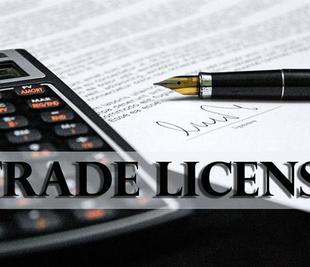
Ministry of Commerce, Manufacturing, Business Development, Cooperatives and Consumer Affairs

Human Resource Management and the Small Business
Published: 2009-12-08
Author: Perle Alcindor
Author: Perle Alcindor
Written by: Perle Alcindor, Business Development Officer, in collaboration with Nancy Francis Charles, Commerce and Industry Officer,Ministry of Commerce, Industry and Consumer Affairs
The ownership of a small business has enticed many. The appeal is strong enough in most cases to encourage a single focus on profits and the freedom associated with being one's own boss. This almost tunnel vision approach to owning a business prevents a thorough assessment of the critical areas to promote sustainability of the business undertaking. One such area is human resource management. Human Resource Management involves the processes to manage people to achieve set goals and objectives. Human Resource Management therefore includes determining what staff is needed; hiring; training; dealing with performance issues; conflict; compensation and developing human resource policies.
Managing people in any business can be overwhelming and time consuming. Many small business owners perform these functions without proper training or experience. Due to lack of financial resources the small business owner usually cannot afford to hire the specialized skills needed to effectively manage the people within the organization. Additionally, small businesses also cannot afford the repercussion of mismanaging human resources. The people hired in the business are the ones responsible for bringing the vision of the entrepreneur to "reality"; therefore personnel issues are too critical to success to be left to chance. Small business owners are required to develop a sustainable strategy to provide for the human resource needs of their business.
How to attract and keep the right person for your small business
Many small business owners are caught in a one man show type management usually out of fear that the people they hire may not function according to expectations. It is clear that no matter the size of the business the owner cannot do it all. Hiring people is inevitable.
Hiring the right person for the job begins with the definition of business goals and a mission statement. A mission statement states the purpose of the business and guides the actions to be undertaken to achieve goals and objectives. The mission statement guides the strategies developed by the business.
With the mission statement established, the business owner now has to do an assessment of the work to be done to achieve organizational objectives. This leads to the definition of the job and its responsibilities. This helps the business owner understand what exactly the person to be hired must do. It is important to be specific as this is necessary for performance evaluation - has the job been done effectively. The definition of the job will also give an indication of what skills are required to perform the job. This will avoid putting square pegs in the round holes.
The next step in hiring the right person involves advertising the job. Due to resource constraints small businesses depend on referrals and word of mouth to advertise. It is important to understand that where you choose to advertise will determine the candidate you attract. One avenue that can be explored is recent college graduates. Small businesses offer college graduates an opportunity to apply the recently acquired skills. Therefore advertising at colleges and school fairs/career showcases can attract a good pool of applicants. Some college graduates may be willing to accept low pay to acquire hands on experience. The small business person must be willing to negotiate and sell the opportunities for growth that exist in their business.
The interview process is critical. This process ensures that the candidate selected fits the culture of the organization. It is necessary to conduct thorough background checks on all candidates who appear to meet the criteria. The recruitment process is a costly undertaking and as such, the small business person must do it right the first time. When the candidate is hired it is wise to ensure there is an orientation process to allow the candidate to understand the culture and the procedures of the organization. Many organizations have developed a human resource manual or staff procedure to help with staff orientation.
Having hired the candidate the business owner must ensure fair compensation, a conductive environment and attractive benefits to retain the candidate. The small business owner needs to be acquainted with labour laws, effective conflict resolution strategizes and management systems to guide and motivate employees to exceed expectations.
One of the strategies small businesses can employ is outsourcing of various human resource functions. Small businesses can form strategic alliances to benefit from the cost of providing training to staff, payroll and other areas. Outsourcing can ensure that these functions are done effectively. Additionally the small business owner can focus on other areas such as product development or client management where they may have a distinct competence.
The Small Enterprise Development Unit (S.E.D.U) encourages all small business owners to work with a Mentor, Business Advisor, Counselor or Business Development Officer from SEDU to promote the viability of their business. Being small is no excuse for not doing what is necessary to protect your investment. Many small business owners know about their product but may not have the capacity to manage effectively. If you are in a small business you are encouraged to do an assessment - if you feel overwhelmed or not accomplishing your goals it may be time to call in the experts for help.





 [more]
[more]